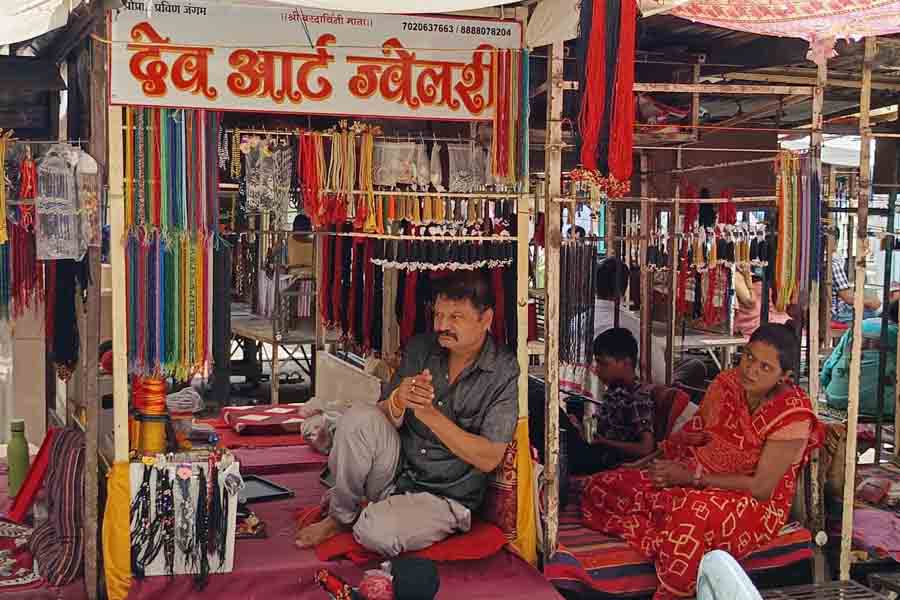Kaushik Mandal from Burdwan in West Bengal is among thousands of craftsmen who have found a living at Saraf Bazar — the gold and silver market of Nashik, Maharashtra.
Housed in Panchavati, one of the oldest areas of Nashik near the Godavari riverbank, is home to a bustling community of migrant workmen, who are much sought after for their skills.
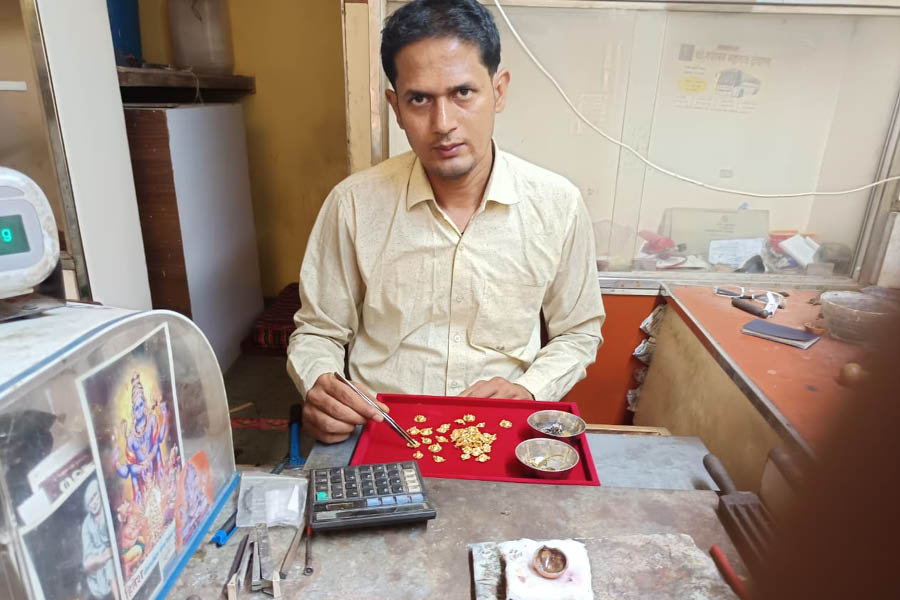
Work as usual for Kaushik Mandal at his workplace
“The craftsmen here are mostly from Midnapore district of West Bengal. There are also many who have come from Tarakeswar in Hooghly and some more, like me, from Burdwan,” said Mondal.
Besides Nashik, Bengal’s craftsmen are also at work in Ghoti, Igatpuri, Jalgaon, Pipalgaon, Rahata, Sangamner and even Mumbai and Pune.
“A craftsman involved in making gold jewellery can work on 20-25 grams of gold a day. Everyone is allowed a ‘loss’ of one gram per 100 grams. Thus, the craftsmith, provided he gets work every day of the month, is likely to get 250 milligrams of gold per day. Here about 50 milligrams gets reduced by virtue of work loss and so on. The 200 milligrams of gold according to today’s rates thus fetches the individual around Rs 1,346. Apart from that, the average monthly salary of Rs 15,000. A decent worker can thus earn anything between Rs 1,000 and Rs 1,500 a day. Rosy, as it may sound, modern circumstances, however, do not allow an income of above Rs 15,000 per month as living expenses are mounting each passing day,” Mondal said.
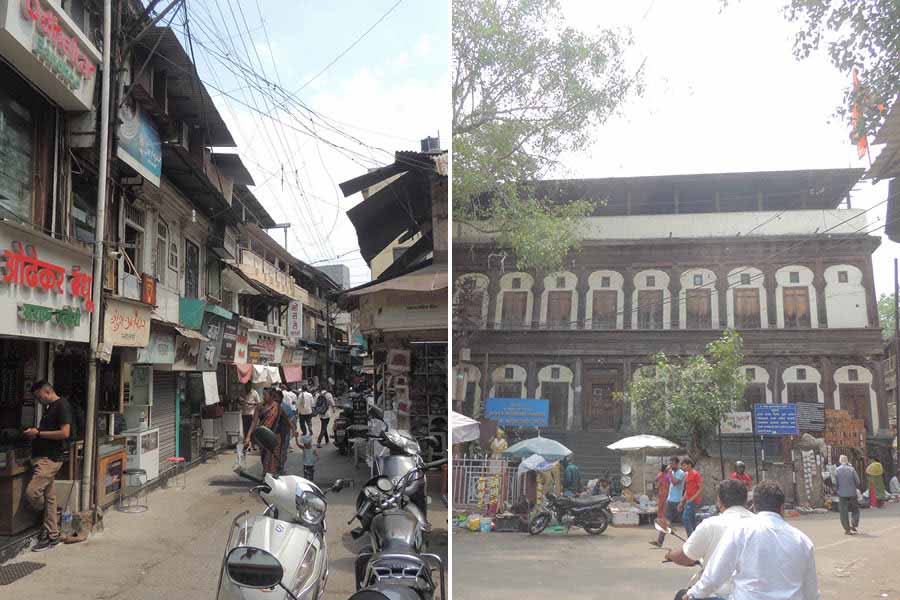
Jewellery lined stores of Saraf Bazar and (right) Sarkarwada, a heritage structure built by the Peshwas at Saraf Bazar
How does it all work? The design chosen by a customer visiting a jewellery showroom reaches a craftsman and then begins the process of bringing alive a picture or an image. The goldsmith may create from his own gold stock or he may have to procure the raw material from known suppliers on goodwill. After conversion of the gold to 22 carat, a lengthy skilful, and intricate process follows at the end of which a fresh piece of polished jewellery is created. Hallmarking certification, too, is a must these days and that must be obtained by the craftsmen themselves.
Craftsmen from Bengal have earned a good name for themselves in the market because of their dedication and zeal. Most of them live in wada — the old building dotting the lanes of Nashik. The rooms are hardly more than 100sqft in area and are shared by a minimum of three or more karigars (craftsmen). The goldsmiths have learnt to organise a simple living for themselves, cooking their own food instead of relying on community kitchens. Families have moved in as well and with most of the women being educated, their children go to local schools.
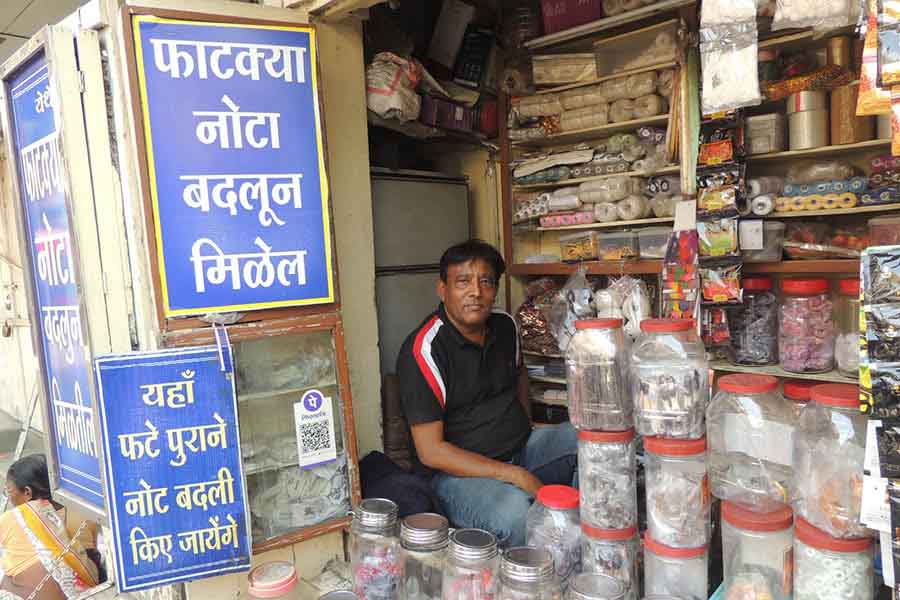
A currency exchanger who also sells eatables
“The pangs of staying so far away from home continue to hurt just as much as we are compelled to stay away from loved ones and joyous occasions. The expenses of travelling, breaking off from work – none supports frequent return trips. The consolation, however, comes from the feeling of satisfaction when we are able to support our families and eke a more than decent lifestyle in these far-off lands,” said one of the craftsmen.
The goldsmiths of Nashik have also formed the Bangali Suvarnakar Karigar Association. But the number of people taking up the craft is on the decline with jobs in other sectors such as hospitality and delivery for online businesses being the more popular options.
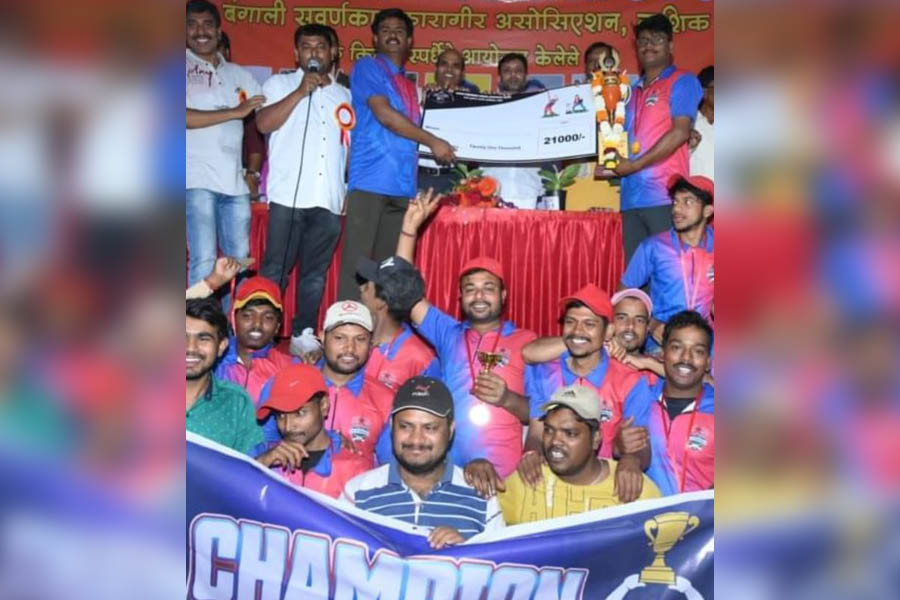
The boys from Bengal at an event organised by the Bangali Suvarnakar Karigar Association, Nashik
